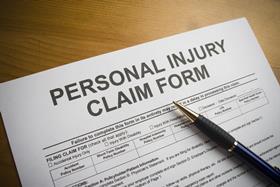The part owner of a law firm has been cleared of contempt after making a personal injury claim for a passenger who was with him in a car at the time.

His Honour Judge Cawson KC, sitting as a High Court judge in Robinson v Murphy, found it had not been proved that legal executive Darrell Robinson had known he was making an untrue statement.
Robinson, the senior partner of PI firm The Rose Partnership, had been away with associates for a social weekend in the Lake District in 2019 when his group’s taxi was involved in a collision.
One of the members of the party, James Gibson, made a claim through Robinson’s firm for whiplash, with a medical report produced stating he had pain and stiffness of the neck and emotional upset. The defendant’s insurer agreed to pay Gibson £3,100 and £816 in costs.
Robinson signed a statement of truth which said that the facts stated in Gibson’s claim were true, including that he was in the car with the group.
Dashcam footage then emerged showing that Gibson was not in the vehicle at the time and judgment was subsequently entered against him for £5,916.
The court heard that, after the truth came out, Robinson was said to be in ‘disbelief’ at finding out that five not six passengers were in the vehicle at the time of the collision. Gibson said he received a call from Robinson where the lawyer was ‘very angry and told me that I would have to repay the money quickly and that he could no longer act for me’.
The insurer brought contempt proceedings against Robinson on the grounds that, as a legal executive since the 1990s, he knew the importance of a statement of truth. Even accounting for Robinson saying he was too drunk at the time to remember everyone who was in the vehicle, there was ‘too much to explain that is either improbable or beyond improbable’, the insurer submitted.
Robinson told the court that at all times he believed Gibson had been in the vehicle. His recollection of events was after a ‘boozy night out’ and pieced together using photos which showed Gibson had been present at other times in the evening. It was only when he saw the dashcam footage that he realised that someone was missing from the vehicle.
The judge said there were ‘imperfections’ in Robinson’s evidence but he did not come across as an ‘obviously evasive or dishonest witness’ attempting to mislead the court.
‘Even if Mr Robinson was not necessarily particularly intoxicated at the time of the accident, the evening at least became a very boozy one that continued over a not inconsiderable number of hours,’ he added.
The judge found contempt was not proved to the criminal standard and dismissed the application.


























